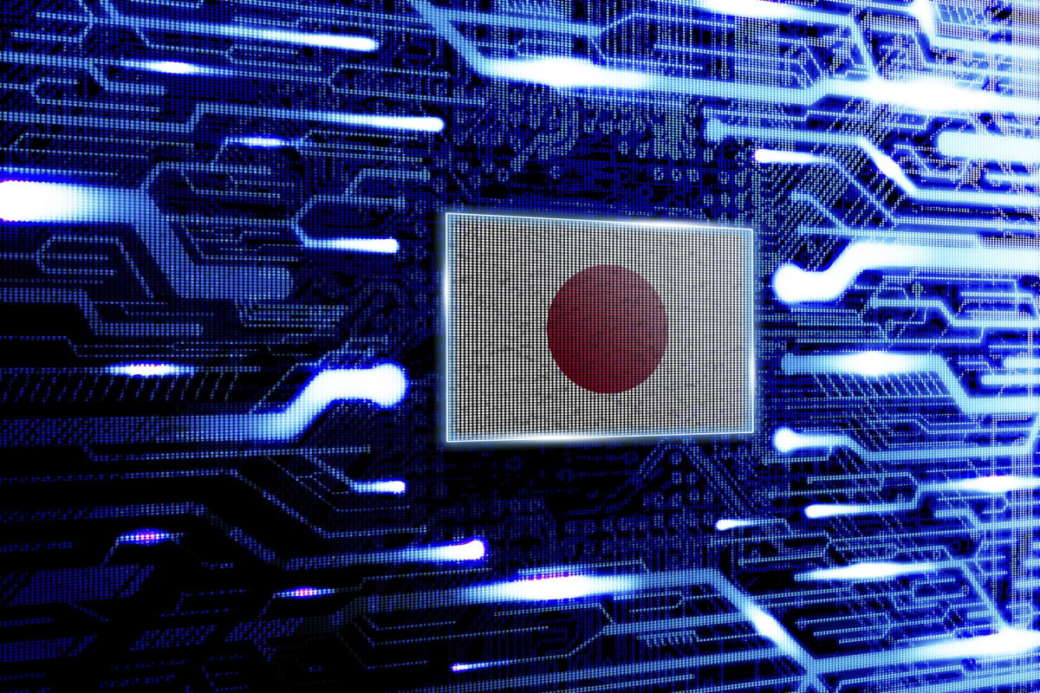
With the acceleration of digitalization processes, many governments reconsidered the importance of cyber security. Penetration of cutting-edge technologies such as AI, Big Data, Internet of Things (IoT), and cloud services require a high level of IT expertise, as well as good governance of cyberspace. Kazakhstan, similar to other countries, has been working on advancing its cyber capacity, along with strengthening its cyber protection. In 2017 the government introduced the Digital Kazakhstan state program and the Cyber Shield Concept for 2017-2022 that frame the digital aspirations of the country. However, the level of digital awareness of the population and business is still in the process of transformation hence directly impacting cyber security. As was examined, the level of awareness of cyber threats in Kazakhstan is considerably low for instance among the civil servants [Sputnik, 2018]. Analysis of the bank sector also revealed ignorance of basic security recommendations [Deloitte, 2021]. The level of cyber defense in major industries also requires attention. Therefore, the government along with the implementation of digital solutions has been working on providing sufficient cyber defense mechanisms.
One of Kazakhstan’s partners in providing such cyber protection is Japanese leading multinational cybersecurity and defense company – Trend Micro. Integration with Japanese solutions gives Kazakhstan cyber specialists in the public sector new technologies to combat complex cyber-attacks, including those that conventional antivirus could not detect [Gadimova, 2020].
The Japanese company was chosen as a major partner in providing cyber security in the public sector, not by chance. Japan is among the leading countries in terms of harmonious regulations in the cyber sphere. In the Global Cybersecurity Index 2020, Japan ranks 7th position in comparison to 31st of Kazakhstan [ITU, 2020]. Japan’s high level of digital transformation is demonstrated by the fact that even in 2017, the Internet penetration in Japan was the second highest (97.2%) in the world after South Korea (99.2%) [Infowatch, 2021]. Hence, the high technological development, along with advanced cyber defense mechanisms allows relying on the Japanese experience in cybersecurity.
The importance of cybersecurity in Japan was first recognized in 2000, while in 2014 the Japanese government adopted the Basic Act on Cybersecurity. In 2018, the Cybersecurity Strategy of Japan introduced the new policies and mechanisms for developing the cyber architecture of Japan under the larger matrix of achieving Society 5.0 goals. The comprehensive preparation for the 2020 Tokyo Olympic and Paralympic Games was also a good test for the Japanese cyber experts in overcoming existing vulnerabilities of domestic cyber-defense. At present, cybersecurity in Japan is placed together with space and electromagnetic space among the factors that directly influence the change of the paradigm of national security in Japan [Ukhanova, 2022].
Internationally, Japan widely promotes its cooperation in cybersecurity, including the rule of law in the cybersphere, developing confidence-building measures and capacity-building in cyberspace [Matsubara and Mochinaga, 2021]. Japan also promotes its cyber diplomacy through active engagement with developing countries. In line with former Prime Minister Shinzo Abe’s Free and Open Indo-Pacific vision (FOIP) from 2016, the Japanese government has been actively promoting its digital connectivity and cyber-security cooperation. The Basic Concept on IT International Policy Centered on Asia became a major policy document that defines basic capacity-building, bilateral and multilateral cooperation, and Official Development Assistance (ODA) mechanisms to raise Japan’s involvement in the digital transformation of Asia [Matsubara and Mochinaga, 2021]. Driven by the idea to provide alternative cooperation to China’s Digital Silk Road, the Japanese government actively promotes its vision for an interconnected society among developing Asian countries.
Nevertheless, Japan itself faces massive cyber-attacks. Together with Australia and India, in 2020 Japan was listed among the most-attacked countries in Asia [Business Standard, 2022]. Japanese companies are vulnerable to cyber threats, especially from China. Chinese cyber hackers, along with North Korea in the majority, target the cyber operations of Japan with few prominent cases of data theft of users [Glucksmann, 2021]. Nonetheless, as part of the preparation for the 2020 Olympics, the Japanese government advanced its cyber defense procedures, especially to avoid data breaches and intellectual property theft, and was cooperating with other international partners to exclude alleged threats [Doyle, 2021].
During the preparation for the Tokyo Olympics, it was also revealed a significant shortage of domestic cyber professionals. In 2020, Japan had only 28% of IT specialists working in-house, which is significantly lower in comparison to the US with 65.4%, Germany with 61.4% and 53.9% in the UK. As a response, the government trained new cyber specialists and allowed them to increase the number of IT professionals, both in-house workers and freelance employees in public sectors [Glucksmann, 2021].
The drawbacks of domestic IT specialists though do not hamper promoting Japan’s capacity-building diplomacy in cyber security. Japanese companies assist in providing capacity-building training for developing Asian countries. Through JICA and other ODA mechanisms, the Japanese government attempts to advance human capacity in cyber security by providing training in malware analysis and other cyber threats for developing countries [Matsubara and Mochinaga, 2021].
Japan’s well-known cyber capacity accordingly could be a good chance for Kazakhstan IT professionals to upgrade the level of cyber security through advancing cyber technologies and cyber skills. While cooperation with the Japanese Trend Micro provides cyber protection for public services, the cooperation with private Japanese companies might raise the cyber security of Kazakhstan companies. Being among Kazakhstan’s key partners in Asia, Japan put the IT-sphere among the priority areas of cooperation with Kazakhstan [Forbes, 2022]. Hence cybersphere could be a good niche for bilateral cooperation. Japan’s active cyber diplomacy with developing Asian countries also advances Kazakhstan’s possibilities for closer engagement in cybersphere.
References
Business Standard (2022). Cyber attacks: India among top 3 most-affected nations in Asia in 2021. Retrieved from https://www.business-standard.com/article/international/cyber-attacks-india-among-top-3-most-affected-nations-in-asia-in-2021-122022400945_1.html. Accessed on 13.03.2022.
Deloitte (2021). Assessment of cyber risks in banks of Kazakhstan. Retrieved from https://www2.deloitte.com/kz/ru/pages/risk/articles/cyber_risk_assessment_kazakhstan_banks.html. Accessed on 13.04.2022.
Doyle, Henry (2021). How Japan has prepared for cybersecurity threats at the Tokyo 2020. Retrieved from https://www.forbes.com/sites/forbestechcouncil/2021/06/15/how-japan-has-prepared-for-cybersecurity-threats-at-the-tokyo-2020/. Accessed on 13.04.2022.
Forbes (2022). Japan considers new directions for investment in Kazakhstan. Retrieved from https://forbes.kz/news/2022/02/05/newsid_268905. Accessed on 13.04.2022.
Gadimova, Nazrin (2020). Kazakhstan turns to Japan for a boost in Cybersecurity. Retrieved from https://caspiannews.com/news-detail/kazakhstan-turns-to-japan-for-a-boost-in-cybersecurity-2020-2-27-27/. Accessed on 13.04.2022.
Glucksmann, Thomas (2021). How will Japan’s cybersecurity posture impact its relations with China? Retrieved from https://thediplomat.com/2021/10/how-will-japans-cybersecurity-posture-impact-its-relations-with-china/. Accessed on 13.04.2022.
Infowatch (2021). Japan is ready for digital transformation and cyber threats. Retrieved from https://www.infowatch.ru/company/presscenter/news/yaponiya-gotova-k-tsifrovoy-transformatsii-i-k-otrazheniyu-kiberugroz. Accessed on 13.04.2022.
ITU (2020). Global cybersecurity index 2020. Retrieved from https://www.itu.int/dms_pub/itu-d/opb/str/D-STR-GCI.01-2021-PDF-E.pdf. Accessed on 13.04.2022.
Matsubara, Mihoko and Mochinaga, Dai (2021). Japan’s cybersecurity strategy: From the Olympics to the Indo-Pacific, Asie.Visions, No. 119, Ifri.
Sputnik (2018). An experiment on civil servants of Kazakhstan showed their weak cyber defense. Retrieved from https://ru.sputnik.kz/20181205/gossluzhba-kiberzaschita-virusy-8361425.html. Accessed on 13.04.2022.
Ukhanova, Erkeley (2022). Cybersecurity and cyber defence strategies of Japan. EURO-ASIAN LAW CONGRESS 2021. SHS Web of Conferences 134, 00159. https://doi.org/10.1051/shsconf/202213400159.
Note: The views expressed in this blog are the author’s own and do not necessarily reflect the Institute’s editorial policy.
Albina Muratbekova
Senior Research fellow
Dr. Albina Muratbekova is a research fellow at the Eurasian Research Institute of Akhmet Yassawi Kazakh Turkish International University. Albina holds a PhD degree in Oriental Studies from Al Farabi Kazakh National University. During her studies, Albina received fellowships from institutions in China, India, the USA, the UK, Germany, and Switzerland. Her primary research interests cover Central, East, and South Asian affairs; intraregional and interregional cooperation of Central Asian states; China-India relations; and Central Asian politics.

